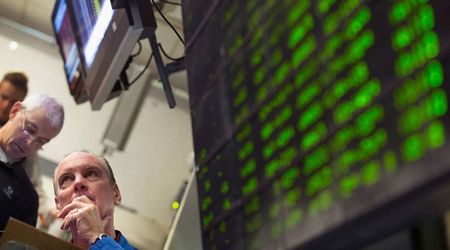'Shark Tank' contestant gets $500,000 deal from Mark Cuban to make chips from food waste

Entrepreneurs on “Shark Tank” stand out when they come up with an innovative product that sometimes appeals to investors on a personal level. This is why a founder, who said that she could use food waste to create gluten-free snacks, got Mark Cuban's attention from the very beginning. In the end, the billionaire who cares about healthy food offered half a million dollars to the company.
An entrepreneur named Kaitlin Mogentale sought $500,000 for a 10% stake in her company, Pulp Pantry. Mogentale explained how more than 50 million tons of food waste is produced in the country every year, and how she uses that waste to create the most delicious and healthy pack of chips. The sharks agreed that the chips really did taste great.
However, the problem was her valuation. With $250,000 in sales the year prior and being on course to make $500,000 in the year of taping, a $5 million valuation seemed too much. That’s what Kevin O’Leary said, and guest shark Emma Grede also agreed. The latter backed out of offering a deal, but Mr. Wonderful noted that he’d give Mogentale the money for 25% of the company.

Barbara Corcoran also said no to making an offer as she believed that the company had a tough road ahead, which she did not want to be a part of. Lori Greiner was interested in working with the entrepreneur, but she wanted to have a good way of making her money blacked. She therefore offered the $500,000 as a loan at a 6% interest to be paid over three years. She also wanted the 10% equity.
With two offers already on the table, Mark Cuban entered the fray. This was a product that was right up his wheelhouse, and he knew he could make it go big. The shark, therefore, offered the entrepreneur the $500,000 but wanted 20% of Pulp Pantry. This was the best offer out of the three that Mogentale had received so far. After negotiations, both parties agreed that 17% equity seemed like a fair deal. Those were the terms everyone agreed on.

The sharks were impressed by what Mogendale had done with her company. The entrepreneur also stated that she helped her suppliers save a lot on composting and transportation costs by purchasing their food waste and even paying to get it delivered.
At the time of taping, the entrepreneur said that her company was profitable, which is a good sign for such a new player in one of the most competitive industries in the world. However, there was still quite a long way to go to be a nationwide success.




















